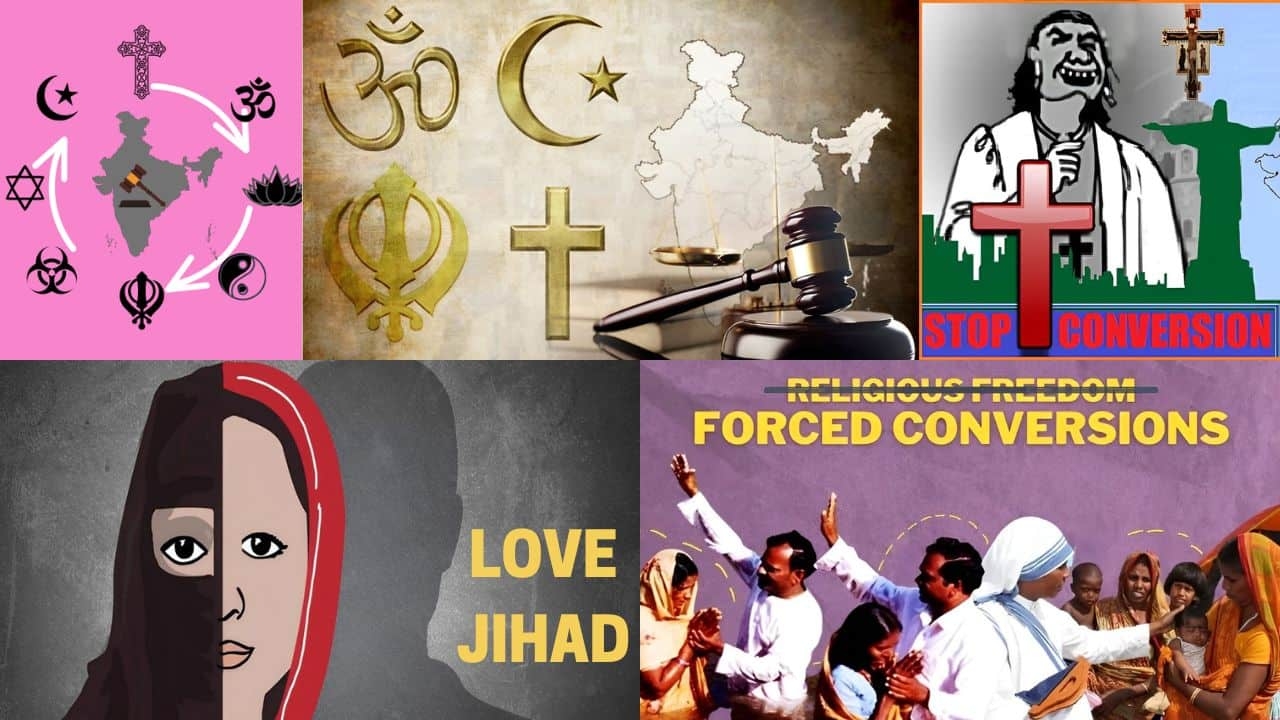Religious Conversions in India Amid Love Jihad, Missionaries
24 Sep 2024 16:18:24

Religious conversion in India has been a contentious issue, with concerns being raised over various forms of conversions, including those linked to interfaith marriages, coercion, and gradual conversions in tribal areas.
The debate is further complicated by socio-political tensions, where certain practices are seen as deliberate attempts to alter the religious demographics of certain regions.
Love Jihad and Forced Conversions
The term Love Jihad refers to allegations that Muslim men are strategically targeting Hindu women for marriage, with the ulterior motive of religious conversion.
Several Indian states, including Uttar Pradesh, have enacted stringent laws to curb this practice, under the Prohibition of Unlawful Conversion of Religion Act, 2021.
This law prohibits religious conversions through deceit, force, or marriage. While proponents of these laws argue that they are necessary to protect vulnerable women, critics argue that the notion of Love Jihad is largely a political tool used to stoke communal tensions between Hindus and Muslims.
Despite ongoing debates about the existence of Love Jihad, reports have surfaced of Hindu women being coerced into converting to Islam after marriage, with cases being widely reported in the media and amplified by right-wing groups.
These instances are often portrayed as part of a larger conspiracy aimed at undermining Hindu culture and traditions. The anti-conversion laws aim to mitigate such practices, ensuring that religious conversions are conducted without any form of pressure or exploitation.
Tribal Conversions in Chhattisgarh and Jharkhand
In regions like Bastar, Chhattisgarh, the focus shifts from interfaith marriages to the activities of Christian missionaries who are accused of converting tribal populations, often through incentives like education and healthcare.
Tribal communities, which have their distinct cultural and religious practices, have become battlegrounds for conversions. Allegations abound that Christian missionaries use force or inducement to bring tribals into Christianity, undermining their indigenous belief systems.
The conversion of tribals is a highly sensitive issue, especially as many tribals practise animistic religions or adhere to local traditions.
State governments, particularly in Chhattisgarh, have taken steps to counter these conversions by promoting tribal culture through initiatives like developing Devgudis (tribal temples) and Ghotuls (socio-cultural centres).
The Chhattisgarh government’s move to promote tribal customs is seen as an attempt to prevent the dilution of tribal identity through religious conversions.
Christianity and the Northeast
In states like Jharkhand and parts of the Northeast, Christian missionaries have been at the centre of controversy, with accusations of forced conversions through financial incentives or social benefits.
Several states have enacted or proposed anti-conversion laws to curb these practices. The enactment of these laws is often supported by Hindu nationalist groups like the Rashtriya Swayamsevak Sangh (RSS), who view Christian conversions as an attack on India’s cultural and religious heritage.
Conclusion
Religious conversions in India, whether through Love Jihad or missionary activities, have sparked significant socio-political debate.
While the victims of these conversions—whether women in interfaith marriages or tribals in rural regions—are often portrayed as innocent and vulnerable, the perpetrators are seen as part of a broader agenda to alter the religious makeup of the country.
Legislative efforts have been made to curb these practices, but the issue remains deeply divisive, particularly in regions where religious conversions are linked to cultural survival and identity.
India’s challenge lies in balancing religious freedom with the protection of vulnerable communities from exploitation under the guise of religion.